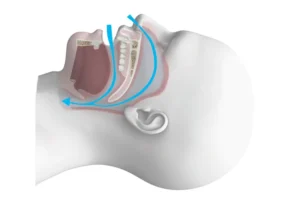Waking up short of breath can be a startling experience, often triggering concerns about underlying health issues. This phenomenon, medically referred to as nocturnal dyspnea, can be caused by various conditions ranging from asthma and COPD to heart failure and anxiety disorders. Identifying the cause is crucial as it dictates the treatment approach. In this article, we will explore common triggers, effective diagnostic methods, and potential treatments to help you manage this distressing symptom. It’s important to consult with a healthcare provider for a proper diagnosis and tailored treatment plan.
Common Causes of Waking Up Short of Breath
Waking up short of breath can be a frightening experience, and it often signals an underlying health issue that needs attention. Several conditions can lead to this unsettling symptom, and it’s important to understand each to seek appropriate treatment. This article explores some of the most common causes, including sleep apnea, asthma, and heart conditions.
By recognizing the signs and symptoms associated with each cause, individuals can take proactive steps toward better health and well-being. This not only improves quality of life but can also prevent more severe health complications in the future.
Sleep Apnea
Sleep apnea is a disorder characterized by repeated interruptions in breathing during sleep. These interruptions, known as apneas, can last from a few seconds to over a minute and can occur dozens or even hundreds of times a night. The most common type, obstructive sleep apnea (OSA), occurs when the throat muscles intermittently relax and block the airway.
Symptoms of sleep apnea include loud snoring, gasping for air during sleep, and excessive daytime sleepiness. Risk factors include obesity, smoking, and a family history of the condition. It’s crucial to seek medical advice if you experience these symptoms as untreated sleep apnea can lead to serious health issues like high blood pressure, heart disease, and stroke.
Treatment options for sleep apnea vary based on severity and may include lifestyle changes like weight loss, the use of a Continuous Positive Airway Pressure (CPAP) machine, or surgical interventions in more severe cases.
Asthma
Asthma is a chronic condition that causes inflammation and narrowing of the airways, leading to breathing difficulties. Nighttime asthma, or nocturnal asthma, can be particularly troublesome and is a common cause of waking up short of breath. Triggers for nocturnal asthma can include allergens, cold air, or respiratory infections.
Individuals with asthma may experience wheezing, coughing, chest tightness, and shortness of breath. These symptoms tend to worsen at night, disrupting sleep and leading to morning fatigue. Effective management of asthma involves identifying and avoiding triggers, using prescribed medications such as inhaled corticosteroids, and maintaining an action plan for asthma attacks.
Regular check-ups with a healthcare provider help keep asthma symptoms under control and reduce the frequency of nighttime awakenings due to breathing issues.
Heart Conditions
Heart conditions, such as congestive heart failure (CHF), can also cause shortness of breath upon waking. CHF occurs when the heart is unable to pump blood efficiently, leading to an accumulation of fluid in the lungs, known as pulmonary edema. This fluid buildup can make breathing difficult, especially when lying down.
Signs of heart-related breathing issues include persistent coughing or wheezing, swelling in the legs or abdomen, and fatigue. Unlike the intermittent nature of sleep apnea, heart-related breathing issues often present as a continuous struggle.
Treatment for heart conditions may involve lifestyle changes like reducing salt intake, medications such as diuretics to reduce fluid retention, and in some cases, surgical interventions. Regular monitoring and medical management are essential in preventing the progression of heart disease and alleviating associated breathing difficulties.
Understanding the various causes of waking up short of breath empowers individuals to seek appropriate medical advice and treatment. Addressing these underlying issues can significantly improve sleep quality and overall health. For more insights into related health topics, explore our other comprehensive articles.
Immediate Steps to Take When You Wake Up Short of Breath
Experiencing shortness of breath, also known as dyspnea, upon waking can be an alarming event. This condition can be caused by various factors such as asthma, sleep apnea, or even heart problems. Regardless of the cause, it’s essential to know what immediate steps to take to alleviate the discomfort and prevent further complications. In this article, we will discuss practical and effective actions that you can take to manage this issue promptly.
Understanding and implementing the right techniques can help you regain normal breathing quickly and can reduce the anxiety associated with unexpected shortness of breath. It is crucial to remember that while these steps can provide immediate relief, you should seek medical advice to address the underlying cause.
Sit Upright
The first and most important step you should take when you wake up short of breath is to sit upright. This position helps to expand your lungs fully and allows better airflow. Lying down can make it harder for the lungs to expand and may aggravate the sensation of breathlessness. By changing your position, you allow gravity to aid in clearing any obstructed airways.
Sitting upright can also relieve pressure from the diaphragm and chest, making it easier to breathe. Place yourself in a comfortable chair or prop yourself up with pillows. It is recommended to keep your back straight and avoid slumping, as a straight posture facilitates better lung function.
Recent studies have shown that maintaining an upright position not only offers immediate relief but can also help in diagnosing the root cause of your breathing difficulties. For example, if symptoms improve significantly when upright, this may point towards conditions like positional obstructive sleep apnea or gastroesophageal reflux disease (GERD).
Practice Breathing Techniques
Once you have settled into an upright position, the next step is to practice breathing techniques designed to calm your respiratory system. One highly recommended technique is diaphragmatic breathing, also known as abdominal or belly breathing. This method focuses on using the diaphragm to take deep, controlled breaths, which can help to stabilize your oxygen levels and reduce anxiety.
To perform diaphragmatic breathing:
- Place one hand on your chest and the other on your abdomen.
- Inhale deeply through your nose, ensuring that your abdomen rises more than your chest.
- Exhale slowly through your mouth, allowing your abdomen to fall.
- Repeat this cycle for several minutes until you feel your breathing normalize.
Another effective method is pursed-lip breathing. This technique helps to slow down your breathing pace and improves the exchange of oxygen and carbon dioxide. To practice pursed-lip breathing, inhale slowly through your nose and then exhale through pursed lips as if you were blowing out a candle. This can help you gain better control over your breathing and ease the sensation of breathlessness.
Implementing these breathing techniques not only provides immediate relief but also equips you with tools to manage future episodes of shortness of breath. It is always a good idea to consult with a healthcare provider to learn more about these techniques and to address any underlying health concerns.
Understanding how to manage shortness of breath effectively can make a significant difference in your quality of life. For more in-depth information on related topics, don’t hesitate to explore our other articles.
When to Seek Medical Help
Knowing when to seek medical help can be a crucial factor in ensuring optimum health and well-being. While some symptoms may resolve on their own, others may signal the need for professional intervention. This section will guide you on the signs and situations that necessitate medical attention, the types of healthcare professionals to consult, and the diagnostic tests that may be required.
It’s important to differentiate between common ailments that may not need immediate medical attention and serious conditions that require prompt care. Early identification and treatment can often prevent complications and improve outcomes. This guide aims to empower you with the knowledge to make informed decisions about your health.
Signs of a Medical Emergency
Medical emergencies can manifest in various ways, and recognizing these signs can be life-saving. Chest pain, especially if it radiates to the arm, neck, or jaw, could indicate a heart attack and requires immediate attention. Difficulty in breathing, sudden severe headaches, and loss of consciousness are also red flags. Other signs to watch for include severe abdominal pain, unexplained swelling, and sudden weakness or numbness, particularly on one side of the body, which could suggest a stroke. Additionally, any uncontrolled bleeding, severe burns, or poisoning should prompt an immediate visit to the emergency room.
In children, high fever, unresponsiveness, and difficulty in breathing are critical signs. It’s also essential to monitor for severe allergic reactions that cause swelling of the face or throat, as these can quickly become life-threatening.
Types of Doctors to Consult
When faced with health issues, it’s important to know which type of doctor to consult. Primary care physicians (PCPs) are often your first point of contact and can manage a wide range of health issues. They can provide ongoing care and coordinate treatment with specialists if needed.
For specialized care, cardiologists, neurologists, and orthopedic surgeons can offer targeted interventions. Cardiologists focus on heart-related issues, while neurologists treat conditions related to the nervous system. Orthopedic surgeons handle musculoskeletal problems, from fractures to joint replacements.
Pediatricians are specialists in children’s health, providing care from infancy through adolescence. For mental health concerns, psychiatrists and psychologists can offer therapy and medication management. It’s also useful to know when to consult dermatologists, gastroenterologists, and endocrinologists for skin, digestive, and hormonal issues, respectively.
Diagnostic Tests You May Need
To diagnose various conditions, your healthcare provider may recommend several diagnostic tests. Blood tests are common and can provide insights into your overall health, checking for anemia, infection, and other issues. Imaging tests like X-rays, MRIs, and CT scans help visualize internal structures to identify fractures, tumors, and other abnormalities.
For cardiac issues, electrocardiograms (EKGs) and stress tests are used to monitor heart activity. Endoscopic procedures, such as colonoscopies and gastroscopies, allow doctors to view the inside of the digestive tract. These tests can detect ulcers, tumors, and other abnormalities.
Biopsies involve taking a small tissue sample for further examination under a microscope. This is crucial for diagnosing certain cancers and infections. Urinalysis is another common test that can detect urinary tract infections, kidney disease, and diabetes.
Remember, early diagnosis through these tests can lead to more effective treatment. Always consult with your healthcare provider to understand which tests are appropriate for your symptoms. Understanding when to seek medical help and knowing the necessary steps can significantly impact your health. For further reading, explore our articles on specific health conditions, treatment options, and preventive measures to stay informed and proactive about your health.
Common Questions About Waking Up Short of Breath
If you’ve ever woken up feeling short of breath, you might have questions about what’s causing this disturbing experience and how to address it. Here are frequently asked questions that can help you understand and manage this condition effectively.
What could be causing me to wake up feeling short of breath?
Waking up short of breath can be caused by several health issues, ranging from benign to severe. Common causes include sleep apnea, where breathing repeatedly stops and starts during sleep; asthma, which can worsen at night; gastroesophageal reflux disease (GERD), where stomach acid backs up into the throat causing irritation; and heart conditions, such as heart failure. Environmental factors like allergens in your bedroom can also contribute to nighttime breathing difficulties.
What should I do if I frequently wake up gasping for air?
It’s important to consult a healthcare professional if you frequently wake up short of breath. They can conduct various tests to determine the underlying cause of your symptoms. In the meantime, maintaining a healthy weight, avoiding heavy meals before bedtime, and keeping your sleeping environment free from allergens might help. Additionally, elevating the head of your bed can keep acid reflux from interfering with your breathing while you sleep.

My name is Salman Kapa, a 73-year-old expert in bone regeneration and dental implantology. With decades of experience in the field, I am dedicated to advancing our understanding of oral health and hygiene. Through my research and writing, I aim to contribute to the development of innovative solutions in dental care.




